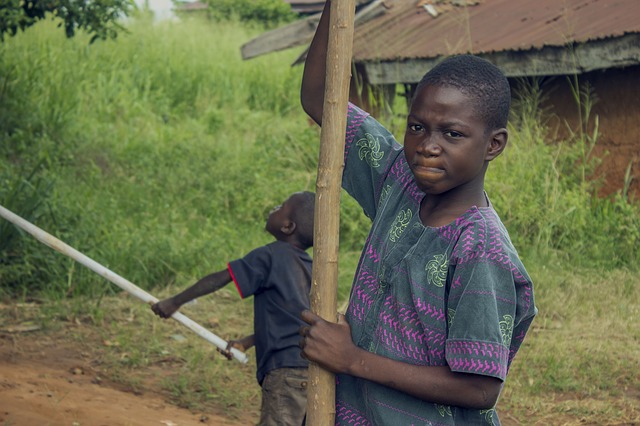Over half of Nigerian children involved in “dangerous and harmful” child labor

Around 50.8% of Nigerian children aged between five and 17 are engaged in child labor, a new survey by the National Bureau of Statistics (NBS) has revealed.
The survey—conducted by the NBS in partnership with the National Primary Health Care Development Agency (NPHCDA) and the United Nations Children Fund (UNICEF)—describes child labor as entailing work that is mentally, physically, socially, or morally dangerous and harmful to children, as well as depriving them of education and opportunities for development.
Substantial regional disparities are also revealed in the findings, with the percentage of children engaged in child labor rising to 56.8% in Nigeria’s North-Central region—more than double the figure of 25.4% in the South-West region.
Further highlighting the particular challenge faced in the North-Central region, the results also show that 49.6% of all children in this area are working in conditions considered “hazardous.”
Discussing the findings, Maureen Zubie-Okolo, UNICEF’s Monitoring and Evaluation Specialist, said “the high level of diverse and tedious jobs that children execute in dangerous circumstances is particularly worrying. Traditionally, children have worked with their families, but today children are forced to work for their own and their family's survival.”
Zubie-Okolo identified the major causes of child labor in Nigeria as poverty, rapid urbanization, breakdown in extended family affiliations, rate of high school dropout, and lack of enforcement of legal instruments meant to protect children.
Expanding on the last point, she echoed the growing chorus of concern that policy measures such as the 2003 Child’s Rights Act have failed to be implemented effectively, suggesting that the child labor figure was particularly “alarming and worrisome” given all legislation to combat it.
Her comments match those of Eric V. Edmonds in IZA World of Labor, who argues that “merely adopting regulations on child employment is not sufficient to influence child labor.”
Instead he says that the “global fight against child labor might be better served by focusing less on the laws that exist and more on their implementation and enforcement, as well as by addressing the root causes of child labor.”
Contact a topic spokesperson.